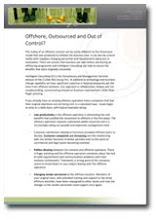Valuing the intangible (time and skill) against the tangible (money) equally across a nation is not easy. Unfortunately, pay gaps now seem to be widening, in particular between men and women, and between graduates who are paid for their qualifications and those whose inexperience is being capitalised on.
It was recently announced that, according to a survey of 49,000 graduates in the UK, women earn 17% less than men up to five years after finishing an undergraduate course:
‘Kings College London is currently the target of a petition after recent official figures showed that female academics at the university may earn £10,000 less than their male peers. The petition was started after statistics… showed that women academics at the university were being paid an average of £46,030 annually while the men were paid £56,301 – a 19% difference.’
The conversation surrounding equal rights in the workplace has focussed on the gender pay gap for months now, so this news may barely register at first. But if we remember the sewing machinists at Ford Motor Company Ltd’s Dagenham plant, we will notice that this is a bigger pay gap that what they disputed in 1968. Their strike resulted in the passing of the Equal Pay Act 1970, and was the first time in history that women had taken or even threatened industrial action.
A pay gap was more understandable 47 years ago, with such early attitudes to equality. But in our progressive society, it is incredible to think that in some places, the pay gap is now actually wider than what prompted the machinists to bring a halt to all production at the biggest car company in the world.
But for all the focus on how the strike forced the issue of equal pay… the essence of this dispute was not money… but recognition. The catalyst for the strike was management’s grading of the machinists’ work as ‘unskilled’, despite it requiring a great deal of initiative, focus and technical ability. They cared about respect for their skills before the possibility of equal pay. Today, many studies have shown that financial reward is rarely our top priority, usually resting below purpose, autonomy and mastery (you can read more on The Puzzle of Motivation here). Perhaps they thought that equal pay would always be inevitable (if slow), but that respect, though unquantifiable, was worth more.
It’s the same for the young graduates of today. But there is a contribution to this imbalance facing both men and women. This generation of entry-level workers have been called ‘overeducated and underemployed’, and this may be because most make no attempt to negotiate their first salary. Many settle for far less than they’re worth, despite only 6.2% of employers in a recent survey saying they’d never negotiate! Whether they fear that their offer will be rescinded, or are simply unaware that negotiation is even an option, graduates everywhere are undervaluing themselves.
We can all afford to attribute more worth to our skills and value in the workplace, it seems. Of course this is, however, applicable to some demographics more than others; in particular, graduates, entry-level workers and women need (and can afford, though they may not yet know it) to lift their horizons to make sure that their earnings reflect their efforts.







No comments:
Post a Comment